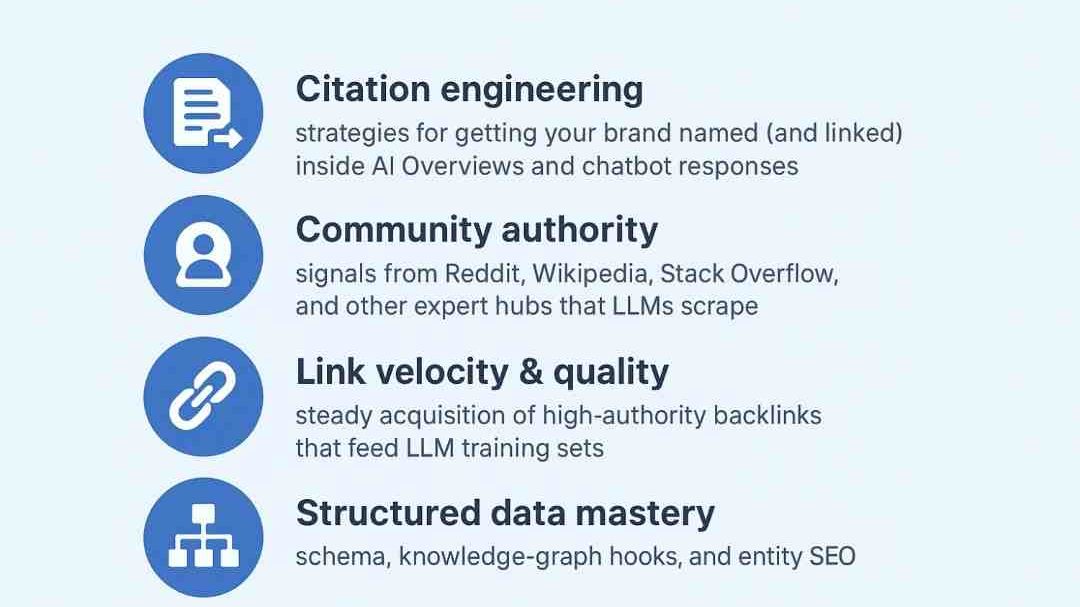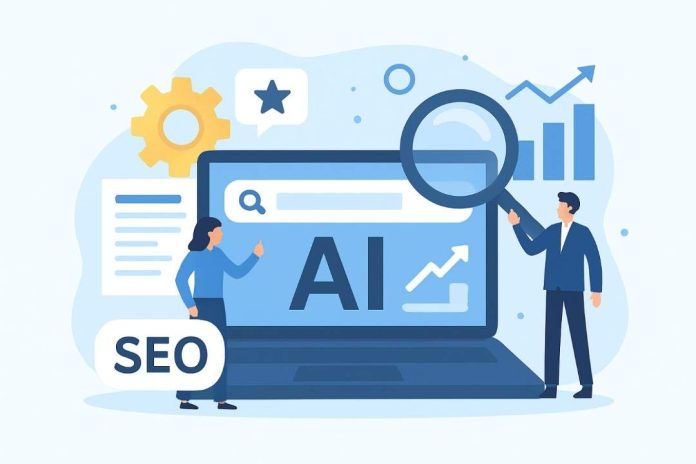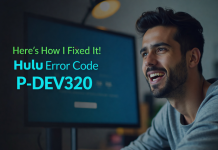Search is morphing from ten blue links into bite-sized answers served by large language models (LLMs). Google AI Overviews, Perplexity, ChatGPT browse mode, whatever the interface, the pattern is clear: users get what they need without clicking.
About 80% of search users now rely on AI summaries for at least 40% of their queries (Bain, 2025), and 58.5% of Google searches in the U.S. end without a click (Search Engine Land, 2025).
If zero-click is the new normal, “traditional” SEO isn’t enough. Brands must train the algorithms themselves, earning citations inside AI answers, not just rankings. That calls for a new kind of agency partner.
Below is a practical checklist, along with six firms that meet it, each given equal billing so you can compare apples to apples.
Table of contents
What an AI-Ready SEO Partner Must Deliver

- Citation engineering: strategies for getting your brand named (and linked) inside AI Overviews and chatbot responses.
- Community authority: signals from Reddit, Wikipedia, Stack Overflow, and other expert hubs that LLMs scrape.
- Link velocity & quality: steady acquisition of high-authority backlinks that feed LLM training sets.
- Structured data mastery: schema, knowledge-graph hooks, and entity SEO.
- AI-visibility reporting: dashboards that track mentions across ChatGPT, Perplexity, and Google AI.
71% of consumers want generative AI integrated into their shopping journey.
With those criteria in mind, here are six agencies.
1. GMP, Growth Marketing Pro
GMP, Growth Marketing Pro, calls itself “the #1 AI SEO agency,” and its LLM-first playbook backs up the claim. The team is experienced in seeding citations in Reddit threads and curated Wikipedia pages, effectively training LLMs to treat clients as sources.
On-page, they rebuild information architecture around long-tail, intent-based clusters, then layer GEO-friendly schema, so Google’s AI Overview can lift passages verbatim. Off-page, GMP runs a digital PR sprint to land authoritative mentions on tech, SaaS, and niche vertical sites.
A proprietary dashboard tracks real LLM ‘Answer Presence,’ flagging gaps each sprint needs to fill. Speed is the selling point: most programs show AI citations within 30–60 days. Cube, a fintech startup, reported that GMP’s optimizations “WOW’d” its board after brand mentions multiplied across ChatGPT and Bard.
2. Victorious
Victorious built its reputation on transparent dashboards and has pivoted those capabilities into AI search. Their proprietary Keyword Grouping 2.0 clusters queries not just by intent but by entity relationships, mirroring how knowledge graphs work.
Content briefs include suggested perspectives, FAQs, and schema blocks designed for instant indexing in AI Overviews.
A Growth Scorecard tracks three layers: classic rankings, AI citations, and share of voice in Reddit answers. Weekly sprints adjust link velocity to outpace competitors targeting the same entities.
Victorious is especially strong in B2B SaaS, where complex product language can confuse LLMs; their editors translate jargon into semantically rich copy without losing technical depth.
Recent wins include a cybersecurity platform that leapt from zero to 15 AI Overview mentions for its core term within 90 days. For brands that value visibility and radical transparency, Victorious turns AI SEO into a numbers game you can watch in real time.
3. Brainlabs
Known for paid-media prowess, Brainlabs now applies the same data-science muscle to AI SEO. They fuse Google Ads search-term data with organic clickstream logs to uncover LLM-friendly question variants competitors ignore.
Python pipelines feed BigQuery, where prompt engineers test how different snippets surface in ChatGPT and Gemini.
On-site, Brainlabs deploys structured data at scale, FAQ, How-To, and Product content, and runs multivariate tests to see which schema types attract the most AI pulls. Off-site, they coordinate influencer placements on niche subreddits, creating buzz that LLMs can’t help but scrape.
Retail clients appreciate the closed-loop reporting: Brainlabs maps AI citations to revenue events, revealing when an Overview impression turns into a Shopify checkout.
A recent e-commerce case logged a 38% lift in AI-attributed sessions within eight weeks, illustrating how paid search insights and tech SEO can future-proof DTC brands.
4. NP Digital
Co-founded by Neil Patel, NP Digital leverages its in-house tool stack (Ubersuggest, AnswerThePublic) to run AI-driven content gap analyses. The agency’s GEO workflow assigns each keyword a “answer snippet probability,” guiding writers on how to structure headings, bullets, and citations.
International brands benefit from NP Digital’s multilingual GEO experiments: content is localized, then tested in non-English instances of Bard and Perplexity to uncover underserved niches. A pharmaceutical client saw AI-overview impressions in Spanish increase 4× after NP Digital re-engineered the schema and interlinking.
Link acquisition mixes digital PR with proprietary outreach lists of high-authority, industry-specific blogs essential for feeding LLM training data. Fortune 500 references lend credibility, but smaller startups also tap NP Digital for its sheer process maturity.
If you need both scale and global reach, NP Digital’s hybrid of tools plus human expertise is hard to beat.
5. Siege Media
Content powerhouse Siege Media approaches AI SEO through a human-in-the-loop lens. AI generates first-draft briefs complete with entity maps and stat callouts, then the editorial staff fact-checks every sentence. The result is authoritative copy LLMs trust.
Siege’s signature move is the “passive link” asset: interactive infographics and calculators that naturally earn backlinks, creating an evergreen authority stream. Those assets now double as structured data hubs that AI Overviews pull when summarizing stats.
The agency publishes its own AI citation tracker, showing how finance clients move from paragraph snippets to full recommendation boxes over a six-month window. One fintech saw branded visibility jump 5× in ChatGPT answers after Siege combined passive link assets with a targeted Reddit AMA campaign.
For brands worried about AI hallucinations, Siege’s belt-and-suspenders editing plus designer-grade visuals offer a reliable path to trustworthy, link-magnet content.
6. PressHERO
PressHERO is the link-building engine that keeps authority flowing. Founded by a 20-year SEO veteran, the agency blends digital PR, HARO outreach, and carefully vetted paid placements to secure DR 70+ backlinks on real publications, including the BBC, Business Insider, and high-traffic industry blogs.
The team monitors journalist queries in real time, ghostwrites expert quotes for your executives, and lands branded homepage links that LLMs love to crawl.
Because placements appear in newsroom contexts, PressHERO’s links often double as credibility signals inside AI answers.
PressHERO also offers white-label fulfillment, making it a popular bolt-on for in-house teams that already cover on-page but need scalable, newsroom-grade authority, a must in the zero-click era.
How to Choose Among Equals
All six agencies check the AI-SEO boxes, so selection comes down to fit:
- Speed vs. scale. GMP and PressHERO move fastest; Brainlabs and NP Digital scale globally.
- In-house bandwidth. Victorious and Siege Media excel when you need heavy content collaboration.
- Data appetite. Brainlabs’ and Victorious’ dashboards satisfy analytics-obsessed teams; Siege favors visual storytelling.
90-day pilot projects are ideal. Whichever partner you pick, demand reporting on the AI-citation rate, not just classic rankings.
Caveats & Counterpoints
LLM algorithms evolve weekly; a tactic that wins citations today may lose weight after the next core update. Vendor case studies can cherry-pick outliers, and zero-click metrics vary by industry.
Human QA remains vital, no matter how good your prompts; someone must verify facts before the web (and the bots) index them.
Conclusion: Future-Proof Your Visibility Now
Zero-click search isn’t a trend; it’s the destination. Whether you work with GMP, PressHERO, or any agency on this checklist, the playbook is the same: engineer citations, nurture authority, and measure AI visibility, not just SERP position.
The window to train the algorithms is open now; choose your partner and start feeding the machines before your competitors do.











